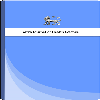ANNELERİN COVID-19 KORKU DÜZEYLERİ İLE BEBEK BAKIM DAVRANIŞLARI ARASINDAKİ İLİŞKİ
COVID-19 Virüs, Korku, Bebek Bakımı
THE RELATIONSHIP BETWEEN MOTHERS' COVID-19 FEAR LEVELS AND BABY CARE BEHAVIORS
COVID-19 Virus, Fear, Baby Care,
___
- Altaş B. Annelikle birlikte aşkın değişen yönü: iyi babaysan seni daha çok severim kocacım!. Akdeniz Kadın Çalışmaları ve Toplumsal Cinsiyet Dergisi. 2019;2(2):174-210.
- Başaran M, Aksoy AB. Anne-babaların korona-virüs (covid-19) salgını sürecinde aile yaşantılarına ilişkin görüşleri. PESA USAD. 2020;13(71):668-678.
- Clemons RM. Issues in newborn care. Prim Care. 2000;(27):251-267.
- Czarzasta K, Wojciechowska M, Segiet-Swiecicka A, Borodzicz-Jazdzyk S, Niedziela M, Sajdel-Sulkowska EM. The effect of depressive-like behavior in pregnant rat dams on the cardiovascular system in their offspring. Stress. 2020;(23):1-7.
- Araji S, Griffin A, Dixon L, Spencer SK, Peavie C, Wallace K. An overview of maternal anxiety during pregnancy and the post-partum period. J Ment Health Clin Psychol. 2020;4(4):47-56.
- Ollivier R, Aston M, Price S, et al. Mental health & parental concerns during Covid-19: The experiences of new mothers amidst social isolation. Midwifery. 2021;94:102902.
- Kimmel MC, Bauer A, Meltzer-Brody S. Toward a framework for best practices and research guidelines for perinatal depression research. J Neurosci Res. 2020;98:1255-1267.
- Kinser PA, Jallo N, Amstadter AB, et al. Depression, anxiety, resilience, and coping: the experience of pregnant and new mothers during the first few months of the Covid-19 pandemic. J Womens Health. 2021;30(5):654-664.
- Abu Sabbah EA, Eqylan SB, Al-Maharma DY, Thekrallah F, Safadi RR. Fears and uncertainties of expectant mothers during the Covid-19 pandemic: trying to reclaim control. Int J Qual Stud Health Well-being. 2022;17(1):2018773.
- United Nations Population Fund. https://www.friendsofunfpa.org/motherhood-during-coronavirus/ Erişim Tarihi: 10 Nisan 2021.
- Farewell CV, Jewell J, Walls J, Leiferman JA. A mixed-methods pilot study of perinatal risk and resilience during Covid-19. J Prim Care Community Health. 2021;11:1-8.
- Preis H, Mahaffey B, Heiselman C, Lobel M. Pandemic-related pregnancy stress and anxiety among women pregnant during the coronavirus disease 2019 pandemic. Am J Obstet Gynecol MFM. 2020;2:1-3.
- Chen H, Guo J, Wang C, et al. Clinical characteristics and intrauterine vertical transmission potential of Covid-19 infection in nine pregnant women: a retrospective review of medical records. Lancet. 2020;395(10226):809-815.
- Satıcı B, Tekin EG, Deniz ME, Satıcı SA. Adaptation of the fear of Covid-19 scale: Its association with psychological distress and life satisfaction in Turkey. Int J Ment Health Addict. 2020;19(6):1980-1988.
- Yalçın S, Örün E, Özdemir P, Mutlu B, Dursun A. Türk annelerde doğum sonrası bağlanma ölçeklerinin güvenilirliği. Çocuk Sağlığı ve Hastalıkları Dergisi. 2014;57:246-251.
- Özdemir K, Menekşe D, Çınar N. Development of obsessive and compulsive behaviors scale of mothers in postpartum period regarding baby care: validity and reliability. Perspect Psychiatr Care. 2019;56(2):1-7.
- Sevimli AD. Lohusaların koronavirüs (Covid-19) korkusu ve doğum sonu destek gereksinimlerinin belirlenmesi. Yüksek Lisans Tezi, İstinye Üniversitesi, 2021.
- Uzun A, Öztürk GZ, Bozkurt Z, Çavuşoğlu M. Investigating of fear of Covid-19 after pregnancy and association with breastfeeding. JID Health. 2021;4(1):327-333.
- Matsushima M, Tsuno K, Okawa S, Hori A, Tabuchi T. Trust and well-being of postpartum women during the Covid-19 crisis: depression and fear of Covid-19. SSM Popul Health. 2021;15:100903.
- Liu C, Hyun S, Mittal L, Erdei C. Psychological risks to mother infant bonding during the Covid-19 pandemic. Pediatric Research. 2021;1-9.
- Oskovi-Kaplan ZA, Buyuk GN, Ozgu-Erdinc AS, et al. The effect of Covid-19 pandemic and social restrictions on depression rates and maternal attachment in immediate postpartum women: a preliminary study. Psychiatr Q. 2021;92(2):675-682.
- Mayopoulos GA, Ein-Dor T, Dishy GA, et al. Covid-19 is associated with traumatic childbirth and subsequent mother-infant bonding problems. J Affect Disord. 2021;282:122-125.
- Demirkol ME, Şimşek L, Yılmaz H, Tamam L. Gebelik ve postpartum dönemde obsesif kompulsif bozukluk. Psikiyatride Güncel Yaklaşımlar. 2018;10(1):118-129.
- Davenport MH, Meyer S, Meah VL, Strynadka MC, Khurana R. Moms are not ok: Covid-19 and maternal mental health. Front Glob Womens Health. 2020;1:1-6.
- Konuk N, Öztürk Ü, Karakuş G, Tamam L. Postpartum obsesif kompulsif bozukluk: bir gözden geçirme. Klinik Psikofarmakoloji Bulteni. 2007;17(3):142-146.
- Mahaffey BL, Levinson A, Preis H, Lobel M. Elevated risk for obsessive compulsive symptoms in women pregnant during the Covid-19 pandemic. Arch Womens Ment Health. 2021;25:367-376.
- Thompson KA, Bardone-Cone AM. 2019-nCOV distress and depressive, anxiety and OCD-type, and eating disorder symptoms among postpartum and control women. Arch Womens Ment Health. 2021;24(4):671-680.
- Reagu SM, Abuyaqoub S, Babarinsa I, et al. Impact of the fear of Covid-19 infection on intent to breastfeed; a cross sectional survey of a perinatal population in Qatar. BMC Pregnancy Childbirth. 2022;22(1):1-9.
- Dymecka J, Gerymski R, Iszczuk A, Bidzan M. Fear of coronavirus, stress and fear of childbirth in Polish pregnant women during the Covid-19 pandemic. Int J Environ Res Public Health. 2021;18(24):13111.
- Guvenc G, Yesilcinar İ, Ozkececi F, et al. Anxiety, depression, and knowledge level in postpartum women during the Covid-19 pandemic. Perspect psychiatr care. 2021;57(3):1449-1458.
- Suárez-Rico BV, Estrada-Gutierrez G, Sánchez-Martínez M, et al. Prevalence of depression, anxiety, and perceived stress in postpartum Mexican women during the Covid-19 lockdown. Int J Environ Res Public Health. 2021;18(9):4627.
- Guy B, Arthur B. Academic motherhood during Covid‐19: Navigating our dual roles as educators and mothers. Gender Work Organ. 2020;27(5):887-899.
- Çuvadar A, Özcan H, Arıkan MGG, Ateş S. Covid-19 tanılı gebede postpartum kaygı düzeyi: İki olgu sunumu. Ordu University J Nurs Stud. 2020;3(3):297-301.
- Yayın Aralığı: 3
- Başlangıç: 2020
- Yayıncı: Kılıçhan BAYAR
Ayşen KÖSE, Halil Tayyip UYSAL, Mümüne Merve PARLAK, Aydan BAŞTUĞ DUMBAK, Melike TANRIVERDİ, Mariam KAVAKCI
Tülay ORTABAĞ, Sezer AVCI, Serpil ÖZDEMİR, Elif DÖNMEZ, Suzan HAVLİOĞLU, Eda AÇIKGÖZ
Serpil SU, Ayşe KACAROĞLU VİCDAN
BİR ÖLÇEK GELİŞTİRME ÇALIŞMASI: HASTA MAHREMİYET ÖLÇEĞİ
Vesile ESKİCİ, Ayşegül YAYLA, Zeynep KARAMAN ÖZLÜ
CİNSİYETTEN BEKLENEN DAVRANIŞLAR KRONİK AĞRIYA VERİLEN TEPKİLERİ ETKİLER Mİ?
Yasemin ÖZYER, Safiye YANMIŞ, Ayfer AKSUOĞLU
HEMŞİRELERİN MULTİPL SKLEROZ VE BAKIMINA YÖNELİK BİLGİ DÜZEYLERİNİN DEĞERLENDİRİLMESİ
